The Best (And Worst) Technology Vendor Stocks Of 2013
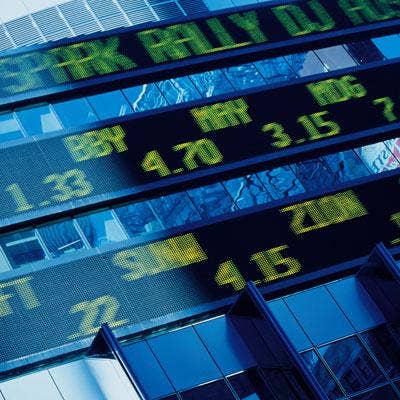
Tech Stock Winners Outnumber Losers By Three-To-One
There weren't many IT vendor losers in the stock market in 2013. Of the 36 technology vendor stocks followed in the CRN index, 27 had year-over-year share price increases. Most of those (24) had double-digit share gains: 11 of them had gains greater than 50 percent and three of those companies had whopping share-price gains greater than 90 percent. But there are always losers. Nine IT vendors in our index saw their stock prices fall in 2013, three by double digits.
The tech companies on our index were generally in good company. In 2013, the Dow Jones Index increased 26.5 percent while the NASDAQ grew 34.3 percent.
Note that a couple of longtime members of the CRN index are missing as Websense was taken private in June, and Dell, after a nearly yearlong battle, went private in October.
Here's a look at the best and worst tech stocks of the year.

FalconStor
CEO: Gary Quinn
Dec. 31, 2012: $2.33
Dec. 31, 2013: $1.35
Change: -42.1%
FalconStor appointed Gary Quinn to be the company's new president and CEO in late July. Quinn had been serving in that post for about a month on an interim basis following the sudden resignation of President and CEO Jim McNiel on July 1.
In the first nine months of 2013 (ended Sept. 30), the maker of disk-based data protection and storage virtualization technologies saw its sales decline 17 percent year-over-year to $44.0 million and a reported loss from operations of $12.6 million. In the third quarter, the company closed an equity investment of $9.0 million from Hale Capital Partners. During the fourth quarter, the company began cutting costs, including employee cutbacks.
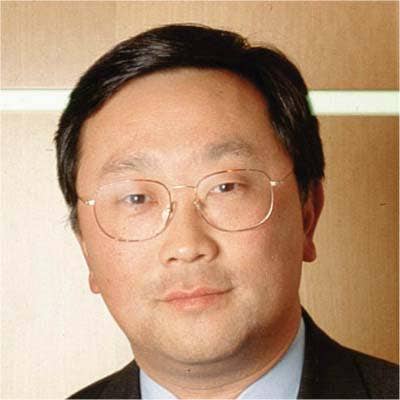
BlackBerry
CEO: John Chen
Dec. 31, 2012: $11.87
Dec. 31, 2013: $7.44
Change: -37.3%
Smartphone maker BlackBerry has struggled for several years, but the company seemed to hit rock bottom in 2013. The BlackBerry 10, on which executives had pinned their hopes for a turnaround, failed to win back customers. The company's losses continued to mount: For the fiscal 2014 third quarter (ended Nov. 30), it reported a massive $4.4 billion loss on a 56 percent revenue drop. In September, BlackBerry began laying off 4,500 employees -- more than a third of its workforce. A $4.7 billion deal to be taken private failed, leading to CEO Thorsten Heins' departure.
In November, John Chen, who turned around Sybase, took over as CEO and began purging the company's executive ranks. In December, BlackBerry struck a five-year deal with Taiwanese electronics firm Foxconn to make handsets for Indonesia and other markets.

Netgear
CEO: Patrick Lo
Dec. 31, 2012: $39.43
Dec. 31, 2013: $32.94
Change: -16.5%
Networking equipment manufacturer Netgear reported that sales for the first nine months of 2013 (ended Sept. 29) grew more than 5 percent to just over $1 billion. But net income for that period plunged more than 37 percent to $43.8 million.
Part of that decrease in profitability is, in part, due to the 35 percent increase in research and development spending during that period. The company is hoping that the fruits of those investments will boost the company's financial performance. In recent months, the vendor has debuted what it calls the industry's most advanced headless media gateway product, a new hybrid set-top box, super-fast desktop network attached storage devices and additions to its ProSAFE Gigabit Plus Switches.
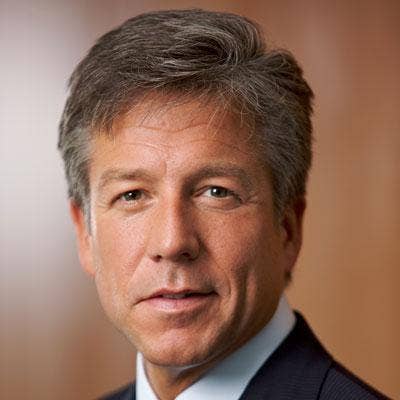
SAP
CEO: Bill McDermott
Dec. 31, 2012: $80.38
Dec. 31, 2013: $74.86
Change: -6.9%
SAP continues to be a market leader for business app software. Its revenue for cloud services is growing rapidly. And it's making a play for the data management market with HANA in-memory database software. Revenue for fiscal 2013 ended Dec. 31 was 16.8 billion Euros (about $23.0 billion), up some 4 percent from fiscal 2012. After-tax profit for the year rose 10 percent to 4.5 billion Euros ($6.1 billion). But in 2013, software sales fell nearly 4 percent in the first three quarters partly due to problems in the Asia-Pacific region. While cloud services sales grew overall, the company scaled back development of its Business ByDesign cloud software after reporting lackluster sales. On the personnel side, Jim Hagemann Snabe, SAP's respected co-CEO, said he would step down this year, leaving Co-CEO Bill McDermott (pictured) in charge. Global Channel Chief Eric Duffaut left abruptly in September.

VMware
CEO: Pat Gelsinger
Dec. 31, 2012: $94.14
Dec. 31, 2013: $89.71
Change: -4.7%
For the first three quarters of 2013 (ended Sept. 30), VMware reported that revenue grew more than 12 percent to over $3.7 billion. At the same time, net income rose more than 25 percent to $679 million.
While virtualization remained one of the hottest areas of the IT market, VMware, once the undisputed leader in virtualization technology, came under increased competition from Microsoft, Amazon, Citrix, Red Hat and others. VMware also was plagued with a number of executive departures this year, including CTO Steve Herrod, Chief Marketing Officer Rick Jackson and Channel Chief Doug Smith. On the technology front, however, VMware made a splash in August when it debuted NSX, its entry in the red-hot software-defined networking technology arena.
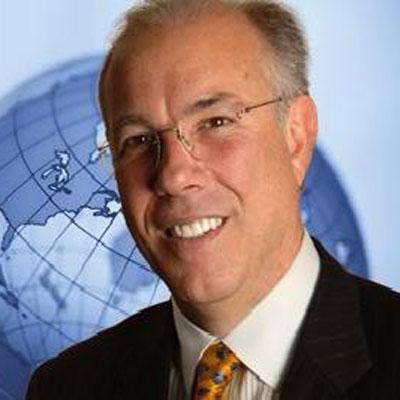
Citrix Systems
CEO: Mark Templeton
Dec. 31, 2012: $65.62
Dec. 31, 2013: $63.25
Change: -3.6%
For the nine months ended Sept. 30, Citrix Systems reported a 15 percent increase in revenue to $2.1 billion. But net income for that period was down nearly 16 percent to just under $201 million.
In June, Citrix made a bold move when it moved its XenServer virtualization technology to the open-source community and began pursuing a Red Hat-like model of selling services and support around the software.
In October, CEO Mark Templeton said he would take a leave of absence for family reasons. David Henshall, CFO and executive vice president of operations, is currently acting CEO.

Quantum
CEO: Jon Gacek
Dec. 31, 2012: $1.24
Dec. 31, 2013: $1.20
Change: -3.2%
Data storage technology developer Quantum has struggled of late to return to growth. For the first half of Quantum's fiscal 2014 (ended Sept. 30), the company reported revenue of $279.4 million, down 3 percent from the same six-month period a year earlier. Quantum reported a net loss of $4.6 million, an improvement from the nearly $29.0 million the company lost in the earlier six-month period.
To turn things around, Quantum is counting on new products, such as a new data archiving system, combining the company's Lattus Object Storage technology with Rocket Software's Arkivio data archiving software. On the channel side, the company recently announced a program that helps VARs and managed service providers offer cloud backup services powered by Quantum's virtual duplication appliances and vmPRO backup software.
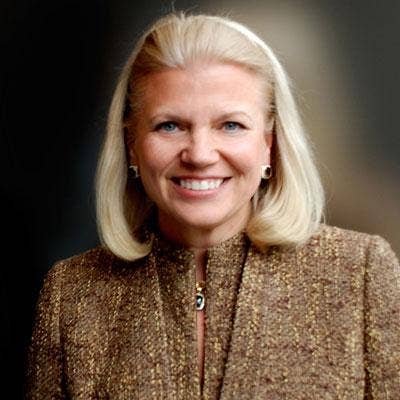
IBM
CEO: Virginia Rometty
Dec. 31, 2012: $191.55
Dec. 31, 2013: $187.57
Change: -2.1%
IBM continued to grow the software and services components of its business in 2013. But that growth wasn't enough to overcome declining sales of the company's server and storage hardware products.
For the nine months ended Sept. 30, IBM reported total sales of just over $72 billion, a 4 percent drop from the same period one year earlier. Net income for that period was $10.3 billion, down from $10.8 billion one year before. In April, CRN reported that IBM was in negotiations to sell its x86-based server business to Lenovo. While that deal never happened, it signaled IBM's efforts to exit businesses that had become commoditized. During the year, meanwhile, IBM spent $2 billion to acquire cloud computing infrastructure supplier SoftLayer Technologies and $1 billion to buy cybersecurity technology developer Trusteer.
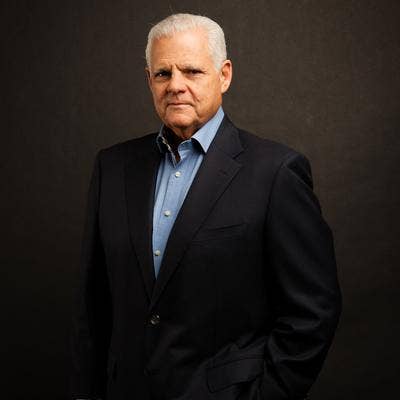
EMC
CEO: Joe Tucci
Dec. 31, 2012: $25.30
Dec. 31, 2013: $25.15
Change: -0.6%
For the first three quarters of 2013 (ended Sept. 30), EMC reported revenue of $16.5 billion, up more than 5 percent from the same period in 2012. Earnings for the nine-month period were up more than 1 percent to just over $2 billion.
The data storage system arena was anything but dull in 2013. EMC was under constant competitive pressure from Hewlett-Packard, Dell and other vendors. But EMC wasn't standing still. In July, it acquired ScaleIO, an Israeli startup developing software-defined storage technology, then in November launched its XtremIO all-flash array product.
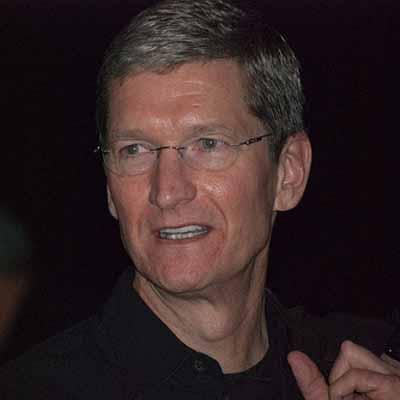
Apple
CEO: Tim Cook
Dec. 31, 2012: $532.17
Dec. 31, 2013: $561.02
Change: +5.4%
Apple is the first company in our roundup to show a gain in its share price in 2013. Apple's stock hit an all-time high of $702 per share in September 2012 and then tumbled more than 40 percent over the next six months. That led to reports that CEO Tim Cook could be on the way out.
That didn't happen, and Apple remains on a growth track. For fiscal 2013 ended Sept. 28, the company reported sales of $170.9 billion, up more than 9 percent from the previous year. But net income for the year fell 11 percent to $37 billion.
While the iPad and iPhone remain big sellers, the question remains about what blockbuster product Apple can come up with to maintain its rapid growth.

Red Hat
CEO: Jim Whitehurst
Dec. 31, 2012: $52.96
Dec. 31, 2013: $56.04
Change: +5.8%
While Red Hat is best known for its distribution of the Linux operating system, the company has aggressively moved into new technology areas such as data storage, cloud computing and -- especially in 2013 -- virtualization to challenge market leaders VMware and Microsoft.
For the first three quarters of fiscal 2014 ended Nov. 30, Red Hat reported revenue of more than $1.1 billion, up from $981 million in the first nine months of fiscal 2013. Net income for the three quarters was $133 million, up from $107 million in the same period the year before.

CommVault Systems
CEO: N. Robert Hammer
Dec. 31, 2012: $69.66
Dec. 31, 2013: $74.86
Change: +7.5%
Data management software developer CommVault reported sales of $276.3 million for the first six months of fiscal 2014 (ended Sept. 30), up more than 20 percent from the same period a year earlier. Net income for the first six months was $30.8 million, up more than 28 percent.
The biggest technology announcement out of CommVault in 2013 was the launch of Simpana 10, a new release of its flagship data management software the company said offered two-times faster backup and archiving than earlier editions and 50 percent improvements in productivity.
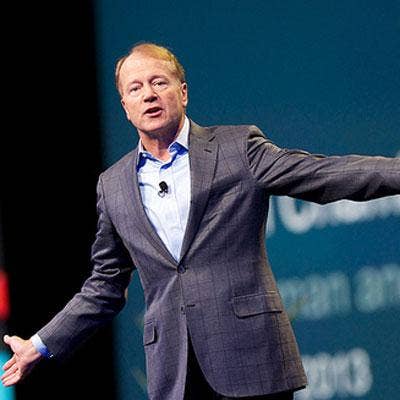
Cisco Systems
CEO: John Chambers
Dec. 31, 2012: $19.65
Dec. 31, 2013: $22.43
Change: +14.1%
Cisco was one of the most aggressive companies in the industry in 2013 in redefining and remaking itself to keep up with a fast-changing market. Cisco CEO John Chambers (pictured) identified the"Internet of Everything" as the next major stage of evolution of the Web and networking. To stay on top of that, Cisco acquired startup Insieme Networks and its application-centric infrastructure technology. Other acquisitions that signaled Cisco's outside-the-box thinking included Whiptail (solid-state memory), Intucell (mobile networking) and Collaborate.com (mobile collaboration).
Adjusting to change can be painful: In August, Cisco said it would lay off 4,000 employees -- or about 5 percent of its workforce -- in an effort to stay nimble in fast-moving areas like mobility and cloud computing. And at year-end, Cisco warned of slower long-term growth.

Juniper Networks
CEO: Shaygan Kheradpir (as of Jan. 1, 2014)
Dec. 31, 2012: $19.67
Dec. 31, 2013: $22.57
Change: +14.7%
The major news at Juniper Networks in 2013 was the steady stream of executives that headed for the door, starting with CEO Kevin Johnson, who abruptly announced his retirement in July. Verizon executive Shaygan Kheradpir took over the top job on Jan. 1.
Especially hard hit was Juniper's channel program as the executive exodus included Senior Vice President of Americas Partners Frank Vitagliano, Worldwide Partner Development Vice President Steve Pataky and Worldwide Partners Senior Executive Emilio Umeoka.
Despite the management turnover, Juniper reported that revenue for the first nine months of 2013 (ended Sept. 30) grew more than 5 percent year-over-year to $3.4 billion, and net income more than tripled to $288 million.

Oracle
CEO: Larry Ellison
Dec. 31, 2012: $33.32
Dec. 31, 2013: $38.26
Change: +14.8%
Since buying Sun Microsystems in 2010, Oracle has struggled to grow the hardware side of its business as it developed its Engineered Systems products and scaled back sales of commodity server and storage hardware products. But as 2013 came to a close, the company appeared to have finally turned the corner as overall hardware sales showed signs of growth. Oracle, meanwhile, remains a force in enterprise software. (Just before Christmas, Oracle struck a deal to acquire B2C software developer Responsys for $1.5 billion.) Sales of new software licenses grew more slowly in 2013, but the company said that's due to the shift to cloud computing and recurring revenue. Revenue from cloud computing continued to grow in 2013 with cloud bookings growing 35 percent in the second quarter ended Nov. 30.
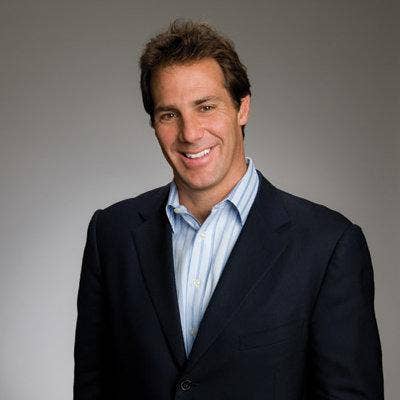
FireEye
CEO: David Dewalt
Sept. 20, 2013: $36.00
Dec. 31, 2013: $43.61
Change: +21.1%
No security company was hotter this year than FireEye. FireEye gained a lot of attention with its antimalware detection technology that can inspect suspicious files in inbound and outbound traffic and block detected threats. The fast-growing company is widely seen as among the leaders in providing businesses with security technology for network analysis, malware inspection and endpoint behavior analysis.
FireEye was the darling of Wall Street and venture capitalists. The company scored a whopping $50 million in venture funding in January, then executed a successful IPO in September. (The 21.1 percent share price gain is based on its closing price on Sept. 20, its first day of trading.) It is also a darling among solution providers: More than 90 percent of the company's sales come through the channel.
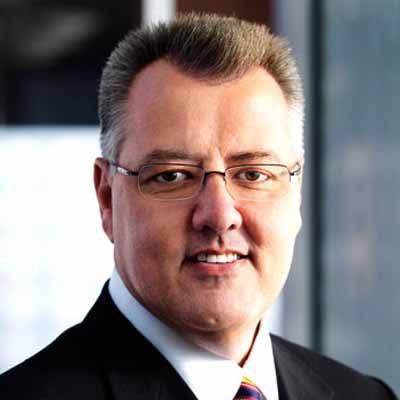
Motorola Solutions
CEO: Gregory Brown
Dec. 31, 2012: $55.68
Dec. 31, 2013: $67.50
Change: +21.2%
For the nine months ended Sept. 28, Motorola Solutions reported sales of $6.2 billion, down more than 1 percent from the same period in 2012. But net income was up nearly 40 percent to $762 million.
In October, Motorola unveiled a slew of new products and software updates, many focused on Google's Android mobile operating system. Those included three mobile devices based on the "Jelly Bean" Android release, and updates to the company's RhoMobile suite and MX by Motorola Solutions suite software.

QLogic
CEO: Prasad Rampalli
Dec. 31, 2012: $9.73
Dec. 31, 2013: $11.83
Change: +21.6%
Flash storage technology has been one of the hottest areas of the IT industry, and one of the coolest flash storage products released in 2013 was QLogic's FabricCache SAN adapter, which connects flash storage in multiple servers into a high-performance, shared pool.
QLogic's growth potential in a hot market may explain why the company's stock has grown despite its recent poor financial performance. For the six-month period ended Sept. 29, QLogic reported sales of $225.7 million, down 9 percent from the same period a year earlier. Net income for the six-month period was $7.9 million, down 74 percent from the same period in 2012.

NetApp
CEO: Tom Georgens
Dec. 31, 2012: $33.55
Dec. 31, 2013: $41.14
Change: +22.6%
For the six-month period ended Oct. 26, NetApp reported revenue of $3.1 billion, up nearly 3 percent from the same period in 2012. But net income for the six-month period surged 43 percent to $248 million.
In November, NetApp expanded its E-series SAN array systems with new disk arrays and all-flash storage arrays. The company also named Regina Kunkle its new vice president of North America channel sales.

Symantec
CEO: Steve Bennett
Dec. 31, 2012: $18.82
Dec. 31, 2013: $23.58
Change: +25.3%
It's been something of a turbulent year at Symantec, starting with the January announcement of a two-year "Symantec 4.0" plan to reassess every product in its portfolio and combine them into more integrated offerings. The plan also included layoffs and the elimination of some middle management positions. A poor second-quarter revenue performance reported in October was attributed to changes in the company's sales coverage model. Sales for the six-month period ended Sept. 27 were $3.3 billion, down a fraction of 1 percent from the same period in 2012. But net income was up 14 percent to $398 million.
CFO James Beer stepped down in October, and Francis deSouza, president of products and services, announced his departure in November. In December, Symantec said it was exiting parts of its managed services business.

Intel
CEO: Brian Krzanich
Dec. 31, 2012: $20.62
Dec. 31, 2013: $25.96
Change: +25.9%
In May, Intel tapped COO Brian Krzanich to be the chipmaker's new CEO, succeeding Paul Otellini who stepped down after leading the company for eight years. Krzanich almost immediately began reorganizing parts of the company and formed a new business unit focused on emerging products.
But Intel struggled to grow in 2013 because of its reliance on the slumping PC industry. The company has sought to catch up with competitors to sell microprocessors for the booming mobile device market. And the company's Data Center Group grew its sales in 2013. For the first three quarters (ended Sept. 28), Intel reported revenue of $38.9 billion, down more than 2 percent from the same period in 2012. Net income for the nine-month period declined 18 percent to just under $7 billion.
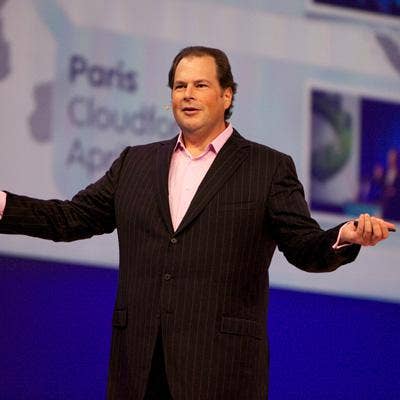
Salesforce.com
CEO: Marc Benioff
Dec. 31, 2012: $168.10 ($42.025 after stock split)
Dec. 31, 2013: $55.19
Change: +31.3%
Salesforce.com offered a four-for-one stock split in March, bucking the trend of companies like Apple and Google that have stratospheric share prices. That split reset Salesforce's share price at $42.025, leading to our calculated growth of 31.3 percent for the year.
At the company's Dreamforce conference in November, Salesforce stepped up its efforts to court ISVs by offering the Salesforce 1 platform for mobile app developers.
For the first three fiscal quarters ended Oct. 31, Salesforce revenues grew 32 percent to $2.9 billion. For the nine-month period, the company reported a net loss of $115.6 million, an improvement from the $249.6 million loss reported in the same period in 2012.

Lenovo Group
CEO: Yang Yuanqing
Dec. 31, 2012: $18.30
Dec. 31, 2013: $24.43
Change: +33.5%
With PC industry sales expected to plunge 10.1 percent (according to IDC) for all of 2013, it's been a tough year for PC makers. And yet Chinese manufacturer Lenovo managed not only to survive, but thrive, in 2013. It captured the PC market's No. 1 spot in the second quarter, ousting longtime No. 1 Hewlett-Packard, and grew PC sales 2.8 percent in the third quarter -- nearly twice the growth rate of HP and nearly three times that of Dell. But it was also clear in 2013 that Lenovo has ambitions beyond the PC arena. It's become a major player in the worldwide smartphone market, and reports explosive sales growth for the server business it launched in 2012.
Lenovo made a serious bid to buy IBM's x86-based server business, an acquisition that would have instantly made it a top player among data center technology providers.
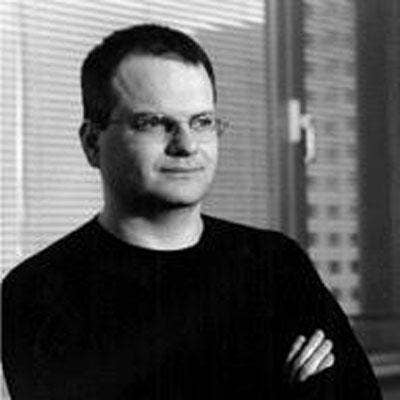
Check Point Software Technologies
CEO: Gil Shwed
Dec. 31, 2012: $47.64
Dec. 31, 2013: $64.50
Change: +35.4%
For the first nine months of 2013 (ended Sept. 30), Check Point Software Technologies reported revenue of just over $1 billion, up more than 3 percent from the same period in 2012. The company also reported some pretty hefty profit margins: Net income for the nine-month period grew almost 3 percent to $458.7 million.
One of the most significant moves in 2013 by firewall and security appliance maker Check Point was the May launch of its 600 Appliances line, offering an all-in-one security system for small businesses.
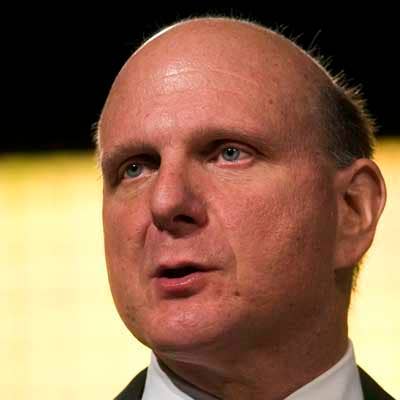
Microsoft
CEO: Steve Ballmer
Dec. 31, 2012: $26.71
Dec. 31, 2013: $37.41
Change: +40.1%
For fiscal 2013 ended June 30, Microsoft reported revenue of $77.8 billion, up 6 percent from fiscal 2012. Earnings for the fiscal year were $21.9 billion, up almost 29 percent. For the first quarter of fiscal 2014 (ended Sept. 30), Microsoft reported revenue of $18.5 billion, up almost 16 percent from the same period one year earlier, while earnings were $5.2 billion, up more than 17 percent.
Despite solid financial results, Microsoft took some hits. Its Surface tablets were a market dud, and the company had to take a whopping $900 million charge against earnings in the fourth quarter for unsold inventories of Surface RT devices. Perhaps the biggest events for Microsoft in 2013 revolved around the company itself, including plans for a massive reorganization and the announcement of Steve Ballmer's plans to retire in 2014.
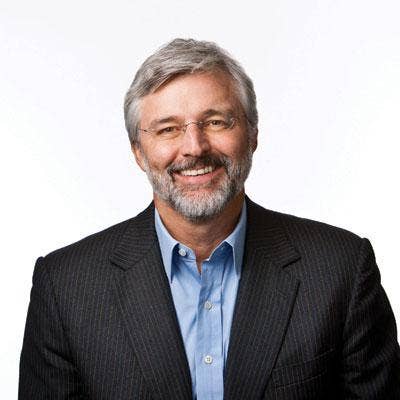
NetSuite
CEO: Zach Nelson
Dec. 31, 2012: $67.30
Dec. 31, 2013: $103.02
Change: +53.1%
NetSuite continued its aggressive channel efforts in 2013, recruiting SAP partners when SAP scaled back development of its Business ByDesign cloud applications and launching a cloud ERP certification program to help partners differentiate themselves in the market. Acquisitions in 2013 also boosted NetSuite's retail, eCommerce and human resource management offerings.
In the first nine months of 2013 (ended Sept. 30), NetSuite reported sales of $299.5 million, nearly 34 percent more than in the same period in 2012. But the company's net loss during those three fiscal quarters nearly doubled to $50.2 million.

CA Technologies
CEO: Michael Gregoire
Dec. 31, 2012: $21.98
Dec. 31, 2013: $33.65
Change: +53.1%
For the first half of fiscal 2014 (ended Sept. 30), CA Technologies reported revenue of $2.3 billion, down more than 1 percent from the same period in fiscal 2013.
At the start of 2013, Michael Gregoire, former Taleo CEO, took over CA's CEO post following the retirement of William McCracken. In May, the company launched a reorganization that included the consolidation of the vendor's development operations and layoffs of roughly 1,200 employees.

Lexmark International
CEO: Paul Rooke
Dec. 31, 2012: $23.19
Dec. 31, 2013: $35.52
Change: +53.2%
For the first nine months of 2013 (ended Sept. 30), Lexmark reported revenue of nearly $2.7 billion, down almost 6 percent from the same period in 2012. But net income soared more than 52 percent year-over-year for the nine-month period to $152.2 million.
Lexmark has been transitioning from a printing hardware company to one more focused on document and print management software and solutions. In October, Lexmark acquired PacsGear, a developer of connectivity software that health-care providers use to capture, manage and share medical images and related documents, and integrate them into picture archiving and electronic medical records systems.

CEO: Larry Page
Dec. 31, 2012: $707.38
Dec. 31, 2013: $1,120.71
Change: +58.4%
Google remains a money machine, growing its revenue in the first nine months of 2013 (ended Sept. 30) more than 20 percent to just shy of $43 billion. Net income for the period grew almost 22 percent year-over-year to more than $9.5 billion.
During the year, Google generated lots of attention with projects like Google Glass, self-driving cars and a mysterious barge floating in San Francisco Bay. You can snicker all you want about the company's more out-there projects. The company's core advertising and related businesses generated almost $40 billion in the first three quarters of 2013. During that period, the company also grew its Motorola Mobile business by 20 percent to $3.2 billion.
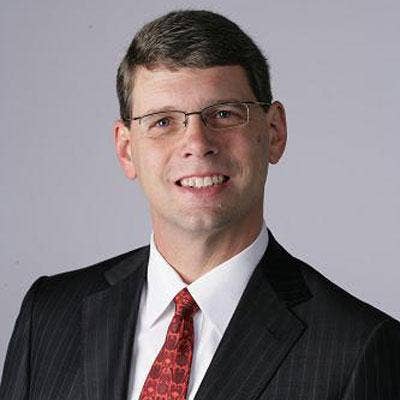
Advanced Micro Devices
CEO: Rory Read
Dec. 31, 2012: $2.40
Dec. 31, 2013: $3.87
Change: +61.3%
For the nine months ended Sept. 28, AMD reported revenue of $3.7 billion, down 13 percent from the same period in 2012. But the company's $172 million loss for the period was a big improvement from the $710 million loss the company reported for the comparable period a year earlier. The chipmaker actually reported a profit of $48 million in this year's third-calendar quarter.
AMD has been refocusing its efforts on developing processors and graphics cores for gaming consoles, such as Microsoft's Xbox One and Sony's PlayStation 4. And in 2013, the company made headlines for its Opteron X-Series, its first foray into the market for low-powered processors to compete with Intel's Atom processor.

Brocade Communications Systems
CEO: Lloyd Carney
Dec. 31, 2012: $5.33
Dec. 31, 2013: $8.87
Change: +66.4%
For its fiscal year ended Oct. 26, data and storage networking equipment maker Brocade Communications Systems reported that revenue was $2.2 billion, down less than 1 percent from fiscal 2012. But net income for fiscal 2013 was up almost 7 percent to $209 million, thanks to some expense management efforts.
Brocade has been expanding what it calls its "On-Demand Data Center" strategy to combine physical and virtual networks to create the next-generation data center. In September, the company expanded its network virtualization product line with new versions of its VDX switches, Vyatta virtual router and VCS fabric software.
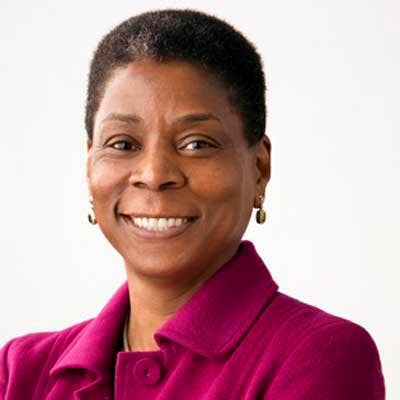
Xerox
CEO: Ursula Burns
Dec. 31, 2012: $6.82
Dec. 31, 2013: $12.17
Change: +78.4%
For the first nine months of fiscal 2013 (ended Sept. 30), Xerox reported revenue of $15.9 billion, down 1 percent from the same period in 2012. Net income for the period also was down 1 percent from a year earlier to $853 million.
Xerox remains a mainstay in the channel, supplying such products as the Xerox Work Centre 6605 multifunction printer. But Xerox continues to expand into new areas such as with its cloud-based eConcierge software, which monitors printers on a network and notifies when supplies are running low.

Seagate Technology
CEO: Steve Luczo
Dec. 31, 2012: $30.42
Dec. 31, 2013: $56.16
Change: +84.6%
Seagate reported revenue of just under $3.5 billion for its first fiscal quarter ended Sept. 27, down more than 6 percent from the same period one year earlier. The disk drive and other data storage products maker reported net income of $427 million for the quarter, down almost 3 percent from a year earlier. For the company's fiscal 2013 (ended June 28), Seagate reported revenue of $14.4 billion, down 4 percent from fiscal 2012. Net income for fiscal 2013 was down 39 percent to $1.8 billion.
With its lackluster financial results and with PC sales tumbling, it may be hard to see why Seagate's stock did so well in 2013. But consolidation in the hard drive industry has left Seagate and Western Digital on top. And as data volumes continue to explode, the demand for Seagate's products isn't going away any time soon.
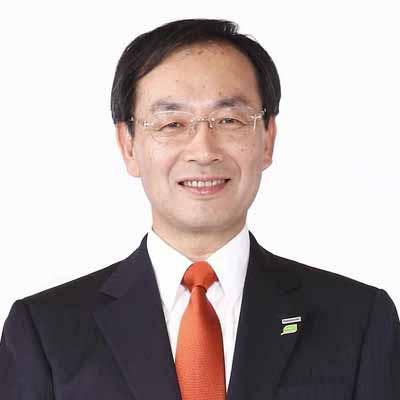
Panasonic
CEO: Kazuhiro Tsuga
Dec. 31, 2012: $6.07
Dec. 31, 2013: $11.66
Change: +92.1%
Panasonic can thank a major rebound in profitability for the humongous gains in its share price.
Panasonic reported sales of 3.7 trillion yen ($35.6 billion) in the six months ended Sept. 30, up about 2 percent from the same period in 2012. Net income for the six-month period was 169.3 billion yen ($1.6 billion), a big improvement over the 685.2 billion yen ($6.6 billion) loss for the same six months in 2012.
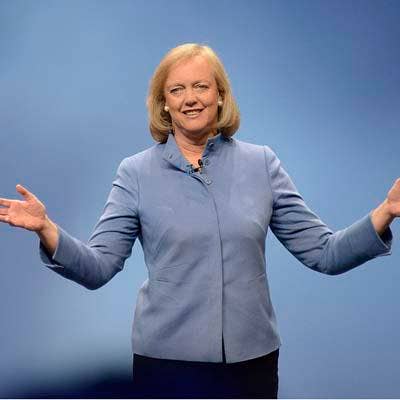
Hewlett-Packard
CEO: Meg Whitman
Dec. 31, 2012: $14.25
Dec. 31, 2013: $27.98
Change: +96.4%
Hewlett-Packard seemed to be adrift, if not floundering, in recent years with turmoil in the executive suite, declining sales and questionable business moves, such as the $12 billion acquisition of Autonomy. In September, the Dow Jones Industrial Average dropped HP because of its low stock price and because it was seen as being out of step with the rest of the economy. Yet in 2013, under the direction of CEO Meg Whitman, HP started to turn itself around. Under Whitman’s five-year plan, the company is getting its costs in line with sales, improving its cash flow and reducing its operating debt. The vendor got its technology mojo back with such products as Moonshot converged infrastructure and Haven big data platform. And there was a sense among channel partners that HP was back on track, thanks to Whitman's partner profitability pledges and clear signals that the channel remains key.

Western Digital
CEO: Stephen Milligan
Dec. 31, 2012: $42.49
Dec. 31, 2013: $83.90
Change: +97.5%
Western Digital, a manufacturer of disk drives and solid-state drives (SSD), nearly doubled the value of its stock in 2013, the biggest gain among the IT vendors on the CRN index. Western Digital spent more than $1 billion in 2013 on a pair of acquisitions that stepped up its presence in the red-hot flash memory arena. In October, the company struck a deal to buy flash storage developer Virident for about $685 million. Earlier in the year, it spent about $340 million to acquire sTec, an early leader in the SSD market. For fiscal 2013 (ended June 28), Western Digital reported sales of $15.4 billion, up 23 percent from fiscal 2012, and 6 percent growth in net income to $1.7 billion. But in the first fiscal 2014 quarter (ended Sept. 27), sales dropped 5 percent year-over-year to $3.8 billion and net income was down nearly 1 percent to $495 million.